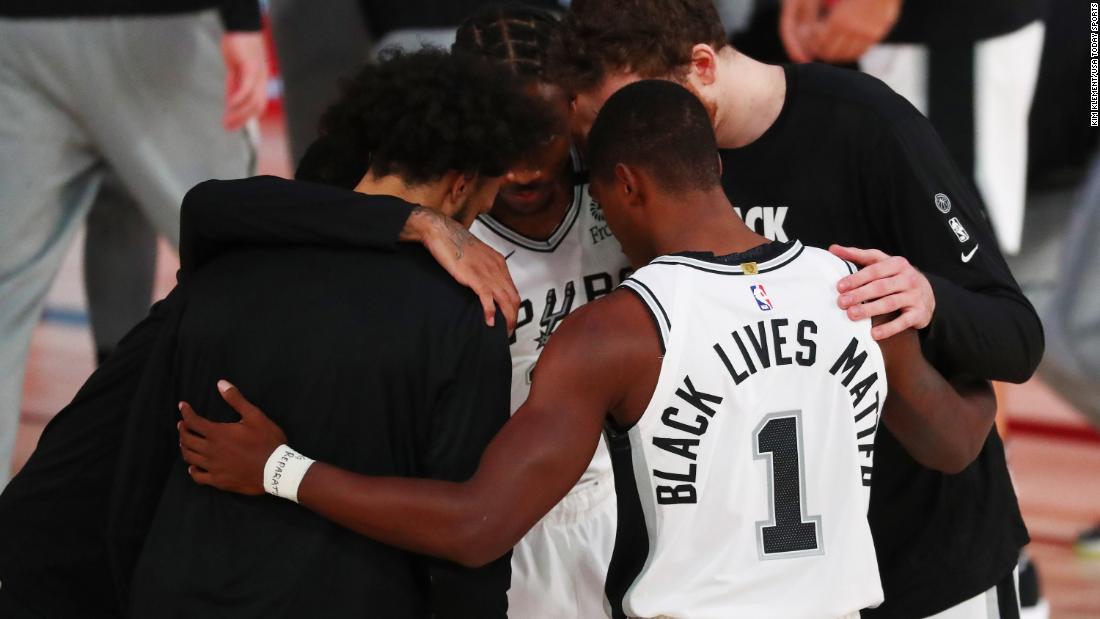The NBA took a stand against police violence. But a second message quickly became clear.
The goal was to take a real stand against the ongoing spate of police violence plaguing the country. But a second message became abundantly clear: Where the NBA’s biggest stars go, others will follow.
There are some key factors that help grease the wheels of the NBA’s ongoing activism. And it begins with some simple math.
Its players know their star power

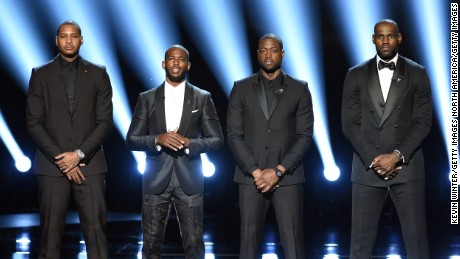
NBA players Carmelo Anthony, Chris Paul, Dwyane Wade and LeBron James speak about the need for athlete activism during the 2016 ESPYS.
While it wasn’t always this way, in recent years international basketball superstars like LeBron James and Chris Paul have set an agenda of racial justice among the sport’s most influential players. That influence is clearly on display now, and is likely to stay that way.
“Now, these players are showing they’re not afraid to even shut the sport down,” says Murphy. “They’ve actually seen what kind of power and influence they have, and we might see some of that trickle down into other leagues.”
Players get more support from on high

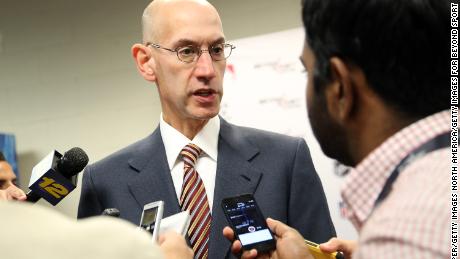
NBA Commissioner Adam Silver, who is credited with fostering a progressive environment in the league.
The last few years have seen a marked increase in social justice dialogue in professional sports, and it hasn’t been uncommon to see NBA coaches, owners and other league leaders speaking up to defend their players.
Even the way players are paid and employed gives them an extra level of security when it comes to their personal beliefs.
“NBA players have guaranteed contracts, so they are inherently more financially stable and secure in their position than in the NFL, where you can get cut from one year to the next,” Murphy says.
A history of activism runs through the sport

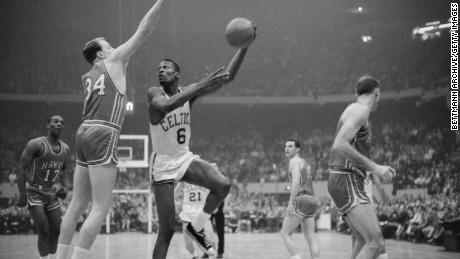
Boston Celtics player Bill Russell during a 1960 NBA Championship game against the Saint Louis Hawks.
Russell, now 86, went on to become an all-time NBA great, breaking barriers for Black players and coaches and cementing himself as a powerful Civil Rights activist. He’s also voiced his support for recent player demonstrations, drawing a bold line from one era of deep social crisis to another.

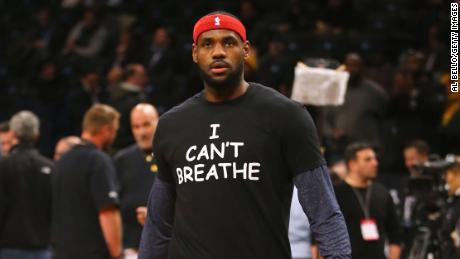
LeBron James wears an “I Can’t Breathe” shirt, invoking the last words of Eric Garner, before a game in 2014.
In the future, the new frontier of activism opened by these recent boycotts will likely continue. By threatening to withhold the very sport they represent, NBA players have made it clear how much is at stake in their calls for racial justice, and how much they will risk to have them heard.
![]()


